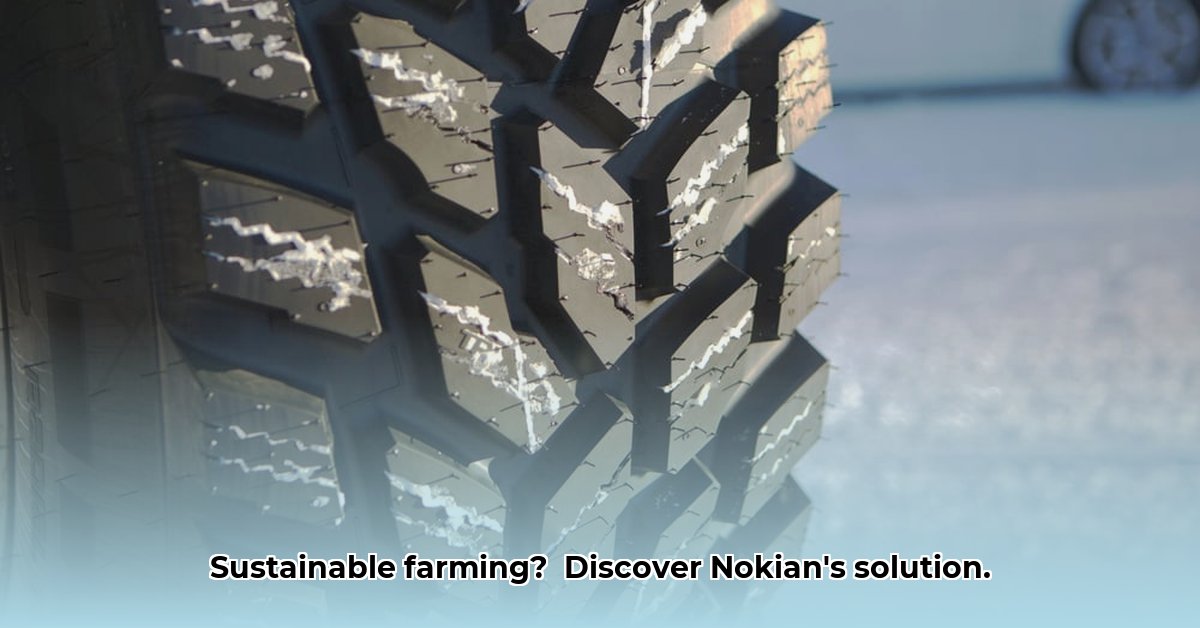
Choosing the right tractor tires is a pivotal decision impacting farm efficiency, soil health, and profitability. This guide focuses on Nokian tractor tires, showcasing how their innovative designs contribute to sustainable farming practices. We'll explore tire types, Nokian's offerings, a decision-making process, and essential maintenance for long-term success. For more information on specific tire sizes like 13.6-28, check out this resource.
Understanding Tractor Tire Types: R1, R3, and R4
Three main tractor tire categories exist, each suited to different tasks and soil conditions:
R1 Tires: These heavy-duty tires feature deep treads for superior traction in challenging conditions like mud or clay. Ideal for plowing and heavy tillage, they excel in grip but can increase soil compaction. Road performance is less optimal.
R3 Tires: Designed for a balance between traction and road performance, R3 tires offer a shallower tread pattern. Suitable for lighter tasks, transportation, and use on delicate soils, they minimize soil compaction compared to R1s.
R4 Tires: These flotation tires are optimized for minimal soil compaction, making them ideal for soft soils. Their wider footprint distributes weight effectively. While excellent for minimizing ground pressure, their road performance can be less efficient compared to R1 or R3 options.
Don't you want to minimize soil compaction while maximizing productivity? The right tire type is paramount.
Nokian Tractor Tires: A Deep Dive into Innovation
Nokian focuses on sustainable farming solutions through innovative tire design. Their commitment to reducing soil compaction is evident in their product line. The Nokian Ground King series exemplifies this innovation, employing a hybrid lug/block design balancing traction and road handling. This results in both excellent field performance and smooth road travel, directly contributing to fuel efficiency and reduced wear.
Nokian offers various models for different applications: The Nokian Ground King is a versatile choice while other models (specific models to be inserted here based on Nokian's current offerings) cater to specific needs like heavy fieldwork or high-speed road transport. Always consult the Nokian website or a dealer for the most up-to-date product information.
Choosing the Right Nokian Tractor Tires for Your Operation
Selecting the best Nokian tire requires considering several key factors:
Step 1: Assess Your Soil Type. Clay soils necessitate tires minimizing compaction, while sandy soils may require more aggressive treads.
Step 2: Analyze Your Work. Heavy tillage demands different tire characteristics than light cultivation or transportation.
Step 3: Prioritize Your Needs. Maximize traction, reduce fuel consumption, or prioritize minimal soil compaction? Define your priorities.
Step 4: Consult a Nokian Specialist. Their expertise provides personalized guidance based on your farm's unique needs.
Have you considered the long-term impact of tire choice on your soil health and operational costs? A well-informed decision can significantly impact your bottom line.
Tire Maintenance: Extending Tire Life and Protecting the Environment
Proper tire maintenance is crucial for longevity and environmental responsibility. Key aspects include:
Regular Pressure Checks: Maintaining correct tire pressure (consult your tire's specifications) is vital. Underinflation increases wear and soil compaction, while overinflation causes damage.
Safe Storage: Protect tires from extreme temperatures and UV exposure when not in use.
Responsible Disposal: Recycle worn-out tires to minimize environmental impact.
Did you know that proper tire maintenance can increase tire lifespan by up to 20%? This translates to cost savings and a smaller environmental footprint.
Case Study: A Farmer's Success Story (Optional)
(Insert actual case study here, including quantifiable data like fuel savings or yield improvements from a farmer successfully using Nokian tires. Include the farmer's name, farm location, and details about their farming operation. This should add compelling narrative elements and demonstrate the practical benefits of Nokian tires.)
By understanding tire types, choosing the right Nokian tires, and adopting responsible maintenance practices, you can create a more sustainable and profitable farming operation. Remember, the optimal tire choice aligns with your specific farm goals and needs. Don't hesitate to seek expert advice – it's an investment that will pay off in the long run.